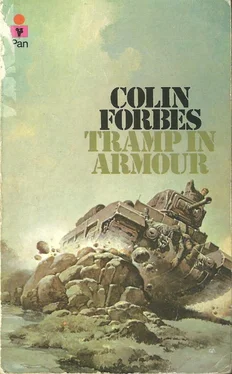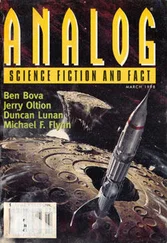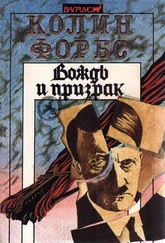Колин Форбс - Tramp in Armour
Здесь есть возможность читать онлайн «Колин Форбс - Tramp in Armour» весь текст электронной книги совершенно бесплатно (целиком полную версию без сокращений). В некоторых случаях можно слушать аудио, скачать через торрент в формате fb2 и присутствует краткое содержание. Город: London, Год выпуска: 1971, ISBN: 1971, Издательство: Pan Books, Жанр: Триллер, Историческая проза, prose_military, на английском языке. Описание произведения, (предисловие) а так же отзывы посетителей доступны на портале библиотеки ЛибКат.
- Название:Tramp in Armour
- Автор:
- Издательство:Pan Books
- Жанр:
- Год:1971
- Город:London
- ISBN:0-330-02686-0
- Рейтинг книги:3 / 5. Голосов: 1
-
Избранное:Добавить в избранное
- Отзывы:
-
Ваша оценка:
- 60
- 1
- 2
- 3
- 4
- 5
Tramp in Armour: краткое содержание, описание и аннотация
Предлагаем к чтению аннотацию, описание, краткое содержание или предисловие (зависит от того, что написал сам автор книги «Tramp in Armour»). Если вы не нашли необходимую информацию о книге — напишите в комментариях, мы постараемся отыскать её.
Tramp in Armour — читать онлайн бесплатно полную книгу (весь текст) целиком
Ниже представлен текст книги, разбитый по страницам. Система сохранения места последней прочитанной страницы, позволяет с удобством читать онлайн бесплатно книгу «Tramp in Armour», без необходимости каждый раз заново искать на чём Вы остановились. Поставьте закладку, и сможете в любой момент перейти на страницу, на которой закончили чтение.
Интервал:
Закладка:
He stood by the desk for a moment, looking down at Reynolds’ haggard face, his thoughts torn and muddled between his wounded driver and the knowledge that within eighty minutes the Panzers he had seen with Jacques from the ridge above the airfield would be on the move, creeping along the underwater road which the French lad had pointed towards. He pulled himself together, refusing to give way to the fatigue clogging his limbs. Think, Barnes, there are things to do.
He opened Berg’s drawer to collect his pay-book, found his own revolver inside, still loaded, and substituted it for the German’s gun.
Reynolds suddenly became talkative and told his sergeant to leave him there since he couldn’t possibly walk or drive. But Barnes just nodded, went to the front door and looked carefully along the silent street. He wasted several precious minutes dragging the dead sentry’s body inside the house, but if a patrol came along he didn’t want the alarm raised if it could be avoided. Dropping the body next to Dahlheim’s, he took a deep breath and began the intricate manoeuvre of hoisting the driver on to his back. Bent double under the great weight, hearing Reynolds’ feet trailing on the floor, he staggered out of the house and wrestled him inside the side-car while his burden protested that the noise of the engine would give them away. Without replying, Barnes went back into the house, switched off the desk light and came out again, closing the door behind Mm.
The starting of the motor-cycle seemed a louder noise than any he had ever heard, but he had made up his mind – he must find a safer place to park Reynolds. The street was still deserted as he drove away from Lemont and reached the outbuildings, cutting the engine quickly and calling out to warn Colburn who emerged from behind a wall with a machine-pistol at the ready. They made Reynolds as comfortable as possible by sitting him on some straw inside one of the buildings – Barnes was determined that this time he would take no wounded crew member on what might be Bert’s final journey. And, he thought grimly, for this journey his crew was now reduced to two – himself and Colburn.
At 3.20 am they were ready to move, but only because they had worked like Trojans. Barnes looked up at Colburn who now occupied his own position inside the turret – the tank commander himself was going to have to drive Bert on his last trip.
‘You really think it will work, Colburn?’
‘It’s more likely to than your idea of firing shells into the dump. That way there’s no guarantee at all that you’ll get a major explosion, but you can bet your sweet life that when this lot goes it’ll -lift the whole dump sky-high – just supposing we ever get close enough and just supposing we don’t go up before we get there. If we do, they won’t have any burial problems with us. Just look down there – this tank is one ruddy great bomb.’
The floor of the turntable at the base of the turret had been tightly packed with gun-cotton slabs and to this lethal foundation Colburn had added a quantity of instantaneous detonating fuses, several cans of petrol, a quantity of phosphorus and some grenades he had found in a satchel. The remaining grenades were still in the satchel hanging from the top of the turret where he could reach them easily. Even closer to hand was the plunger mechanism and a large spool of wire. Colburn pointed to the plunger.
‘And just supposing, Barnes, that we do get a chance to get clear of the tank before this lot goes up…’
‘Don’t bet on that, Colburn.’
‘Hell, I’m not betting on a damned thing. But just supposing you’re on your own then, don’t forget to take the coil of wire as well as the plunger with you. The wire’s paid out through the gun slit so you can ram the lid shut – ramming the lid shut is important because it locks everything inside and increases the power of the explosion quite a bit…’
‘We’ve got to get moving, Colburn.’
‘For Christ’s sake, I know I’m telling you twice but it may save your life. Before you press the plunger you must turn this switch. This device is as harmless as a kitten until you do turn the switch. Come to think of it, Barnes, I reckon we’ve got rather too many "supposings" in this equation.’
‘We’ve also got seventy two-pounder shells and boxes of Besa ammunition to pep up the explosion.’
‘I know. I just hope I’m around when that lot goes up – it will be the crowning blow-up of my career to date. When I say "around" I do mean at the very end of that paid-out wire,’ he added.
‘We’d better get moving, Colburn. I’ve a nasty idea we’re too late already with riddling around with your little toy. You’ll have to handle all the observation and talk to me over the intercom. Think you can manage?’
‘A damn sight better than I’d manage driving Bert. OK. As ‘ the bomber crew guys say, this is the final run-in.’
‘Which is pretty appropriate since it’s a mobile bomb we’ve got for delivery to General Storch.’
Three minutes later the tank was moving through the village at full speed, its headlights ablaze, rumbling down the deserted street like an avenging phantom. It was their only chance, Barnes felt sure of that – to press forward as though they owned the place in the same way that Mandel had described the advance of the Panzers across France. And it was their one advantage – the element of total surprise, an element which must be rammed home ruthlessly right up to the moment when they reached the airfield, if they ever did reach it. The appearance of a tank in the early hours with its lights full on must cause a reaction of doubt, of indecision, for at least a few vital seconds, and in that time Bert should pass any patrol they might encounter. It was all a question of how soon they ran up against the big stuff.
They were moving past the house where Reynolds had saved him, he felt sure of it, although his vision was limited and he was relying heavily on Colburn’s guidance over the intercom. The driver’s seat was closed to its lowest level and the hood over his head was shut, sealing him off from the outside world so that his only view was through the slit window in front. Four inches of bullet-proof glass protected that slit while 70-mm of armour-plate shielded him from shell-fire -the thickest plate covered the front hull – so theoretically he was fairly safe. Unless the tank caught fire and when he rolled back the hood he found the two-pounder barrel pointed straight ahead and depressed to its lowest elevation, in which case the barrel would form a steel bar preventing him from climbing out at all while the tank burned. Cynical drivers said that was why the driver was issued with a revolver – to give him an easier way out than frying alive. Why the hell am I thinking like this, Barnes wondered? Perhaps only now he was really appreciating what poor Reynolds had gone through.
He hoped that if it really came to it, Colburn did know how to use a Mills hand grenade. The Canadian had told him that a British staff sergeant had demonstrated their use on a bombing range and Barnes could imagine Colburn taking a great interest in how the mechanism worked. Still…
‘Barnes,’ Colburn’s voice came clearly over the one-way intercom. ‘We’re approaching a square and from that sketch-map you. drew me we go straight over, but there may be a problem – I can see lights. Keep moving, I’ll keep you in touch.’
Up in the turret Colburn stared anxiously ahead. The lights shone through some trees in an open square surrounded with two-storey houses and the beams were stationary. He couldn’t see any sign of troops, any hint of danger, just those lights coming through the trees. Barnes had told him that as far as he had been able to make out when he reconnoitred the village with Jacques the place had been evacuated of civilians, which would be logical since the Germans were using it as a forward base. They had penetrated as far as the house of Jacques’ father and he had not been at home. So any sign of life was likely to be hostile life. The square, apparently deserted, came closer and Colburn moved from side to side as he tried to see behind the trees. There was something there, then he saw them.
Читать дальшеИнтервал:
Закладка:
Похожие книги на «Tramp in Armour»
Представляем Вашему вниманию похожие книги на «Tramp in Armour» списком для выбора. Мы отобрали схожую по названию и смыслу литературу в надежде предоставить читателям больше вариантов отыскать новые, интересные, ещё непрочитанные произведения.
Обсуждение, отзывы о книге «Tramp in Armour» и просто собственные мнения читателей. Оставьте ваши комментарии, напишите, что Вы думаете о произведении, его смысле или главных героях. Укажите что конкретно понравилось, а что нет, и почему Вы так считаете.








![Невилл Форбс - История Балкан [Болгария, Сербия, Греция, Румыния, Турция от становления государства до Первой мировой войны] [litres]](/books/390301/nevill-forbs-istoriya-balkan-bolgariya-serbiya-gre-thumb.webp)


